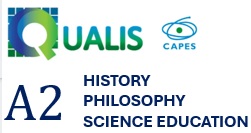Evaluating the Cognitive Success of Thought Experiments
DOI:
https://doi.org/10.24117/2526-2270.2017.i3.06Keywords:
Thought Experiments, Back Ground knowledge, Confirmation, Plausibility, SuccessAbstract
Thought experiments are widely used in natural science research. Nonetheless, their reliability to produce cognitive results has been a disputable matter. This study is conducted to present some rules of confirmation for evaluating the cognitive outcome of thought experiments. I begin given an example of a “paradigmatic” thought experiment from Galileo Galilei: the falling bodies. Afterwards, I briefly surveying two different accounts of thought experiments: James R. Brown’s rationalism and John D. Norton’s empiricism. Then, I discuss their positions and I show that none of them may tip the balance towards the rationalism or empiricism they try to defend. Finally, I put forward that the notion of confirmation, connected to the notion of increasing plausibility, can be used to develop some confirmation rules to compare the explanatory power of thought experiments in competition, regardless of their rational or empirical nature in which the discussion of this type of experiment has been engaged in recent years.
Downloads
Published
Issue
Section
License
Copyright (c) 2017 Damián Islas Mondragón

This work is licensed under a Creative Commons Attribution 4.0 International License.












